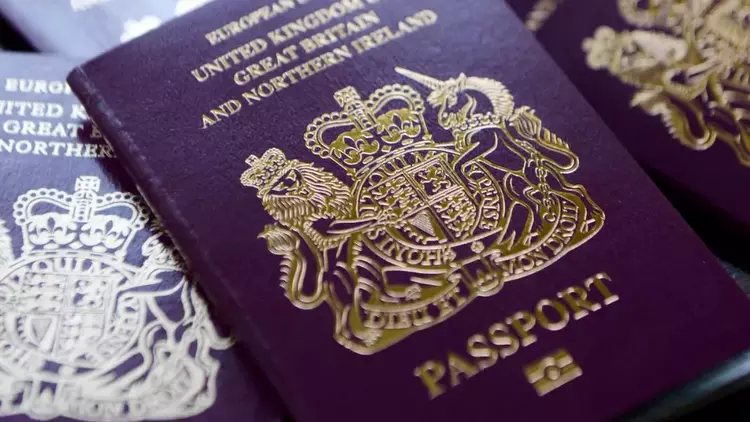
While most readers of this site will probably be more interested in moving from the UK or elsewhere to the Philippines, I assume there are also readers who are living in the Philippines already, and whom, from time to time, might flirt with the idea of moving home again.
This can happen for any number of reasons. The only permanent thing in life is impermanence, circumstances change constantly, and what seemed like a dream yesterday can grow tiring and stale. I decided last year when my son was born to return to the UK after living in Asia for almost a decade. Of course, my Filipina spouse would be coming with me.
If you’re thinking about this or do so from time to time, there are some things you should be aware of regarding the current visa rules for non-European nationals. Coming home to the UK with a Filipino spouse is extremely challenging, and there are multiple legal obstacles set up to specifically attempt to stop you from doing so.
All of these can be overcome, but being aware of them fully before making any such attempts is a crucial first step. As the old saying goes, you must ‘Know thy enemy’ to defeat him.
A Little Background
My situation is by no means unique, and I wouldn’t be the first expat to decide to return home after a major life event. As it so happens, the birth of my son also coincided with the largest crash the oil industry has seen in decades, which is how I made my bread and butter and how my wife and I had planned to stay in the Philippines permanently.
I had never even seriously considered returning home until these two events took place. However, after carefully meditating upon it for a period of months and visiting home for a trial run for the first time in years, we decided that the brighter future for both us and our son lay in the UK. I have no doubts whatsoever that we made the right decision, even though I do miss the Philippines in many ways.
Enter The Problem
However, we found ourselves in a precarious position. You see, British nationals with non-EU spouses are required to prove their income to the British government to show they can support their families. The minimum income threshold is£18,600 per year at the time of writing. This increases with every child that you have who isn’t a British citizen.
Thus, the expat returning to the UK finds himself in a strange and frightening situation. He most likely does not have a job at £18,600 per year, and until he gets home and re-established, has little chance of finding one.
The UK government will give your Filipino spouse a 6-month tourist visa to visit in most cases. However, most expats agree that when returning home with your family this is nowhere near enough time to get settled, find a job which meets the minimum income requirements, and complete the necessary paperwork and gather the required evidence to prove it to the British government before the spouse tourist visa runs out.
It quickly becomes apparent that without a stroke of serious luck, either your spouse will not be able to come with you, or he/she can come but will have to leave and return to the Philippines until the process is complete. Most agree this is absurd and is a violation of the basic right to family life, and even some in the British legal system have agreed, but nonetheless it remains the law and unless your spouse wants to be permanently deported, you will have to comply with it.
So, in a nutshell, the expat with the Filipino spouse will have to either leave their family behind and return to set things up for something which could take a year or in some cases a lot longer to complete, or will have to bring their family, and then send them back to the Philippines while they work on the rest of the process.
The Courts
This has been fought in the British courts, with the initial trial siding with the British citizens and their families. The Court of Appeal, sadly, did not agree, and rules in favor of the Home Office. This case is now in the Supreme Court, but with Brexit and other such political volatility, nobody expects a final answer anytime soon.

The Solution
There are a number of different solutions to this problem, all of which should be carefully considered before any move is made. They are all somewhat absurd in nature and will make the logical man scratch his head in amazement that elected officials could be so utterly incompetent and could create such a mess, but they are nonetheless the only options the expat has.
1. Be or Become a Mac Daddy
If you’re a mac daddy with a fat pension and make more than £18,600 per year (more if you have kids), you have no worries. Apply before you come, provide approximately 6 months of evidence, pay the fee, and bob’s your uncle.
2. Job Hunt
You could try to secure a job before you come, particularly if you work in a lucrative field which will easily surpass the income requirements. It can be difficult to convince someone to hire you when you’re not even in the country, have no address there, and are simply promising you will return.
That said, it has been done. It may take a few connections and a little luck, but I would be lying if I said it is impossible. This still leaves you with a slight time issue and at least an extra round of flights to buy.
Sadly, it may also mean time apart from your family if they need to come back to the Philippines for a while in the event that their tourist visas expire before the necessary evidence is collected and the application launched for a spouse visa.
3. Go to Europe
I haven’t mentioned this yet, but this law does not apply to European citizens living in the UK, who are free to bring their families to live here without restriction. Anyone holding an EU Family Permit is able to come to the UK and stay, and your spouse is entitled to get one in many other EU member states, other than the UK.
Many expats returning home take the route. It’s called the Surinder Singh route and involves you picking a country in Europe, moving there, and staying for a period of roughly 3 months while you obtain the Family Permit. Once this is issued, you may return to the UK without hindrance (at least until Brexit takes place).
Most agree this is a major and unnecessary hassle, but again, it is the law. You could also approach it as a final adventure before returning home and turn it into a positive.
4. Surrender Your British Nationality
Yes, I’m dead serious. After contemplating all of the options, this is exactly what I decided to do, exercising my right to Irish nationality in the process.
If you have any other European nationality, you can surrender your British passport and move here with your spouse unrestricted and immediately. Once you get your certificate of renunciation you can apply for your spouse to join you in the UK under the EU Family Permit scheme talked about above. This is legally required to be issued within 3 weeks.
You can get your British nationality back again at a later stage, but it’s costly and there may not be any great reason to do so.

Conclusion
Apart from the conclusion that Britain has gone barmy on immigration, you can see here that an expat returning home with a Filipino spouse does have some obstacles to overcome, but does not have an impossible task ahead.
If you find yourself in this situation and are looking for a way forward, consider the options you have above. I also highly recommend getting in touch with an immigration solicitor as confirming which option is best for you under the guidance of a trained professional is a much better idea than spending endless hours scouring the internet and worrying at night about whether or not it will work.
You do have options to return home with your family. While this punitive and unfair law is current, I still believe that the arc of the moral universe is long, but does bend towards justice. At some point, hopefully, not too far in the future, this draconian law will be overturned.
Returning to the UK is your right, even if you never exercise it, and being aware of these current rules is step 1 to making an informed decision about your future.
Returning to the UK with a Filipino Spouse









